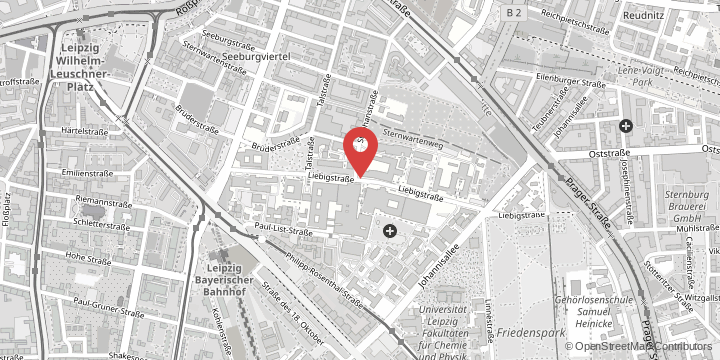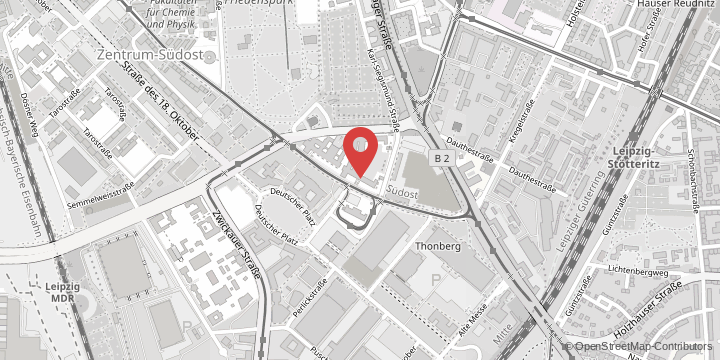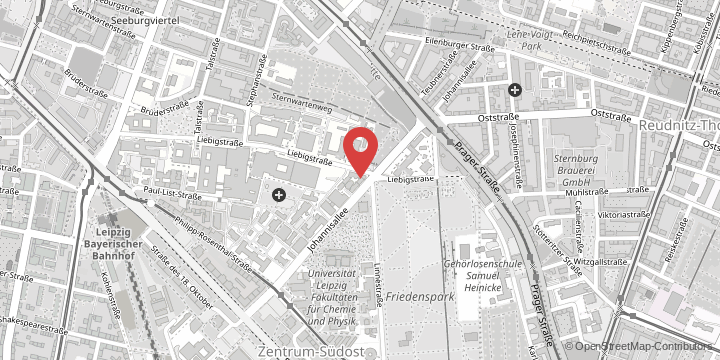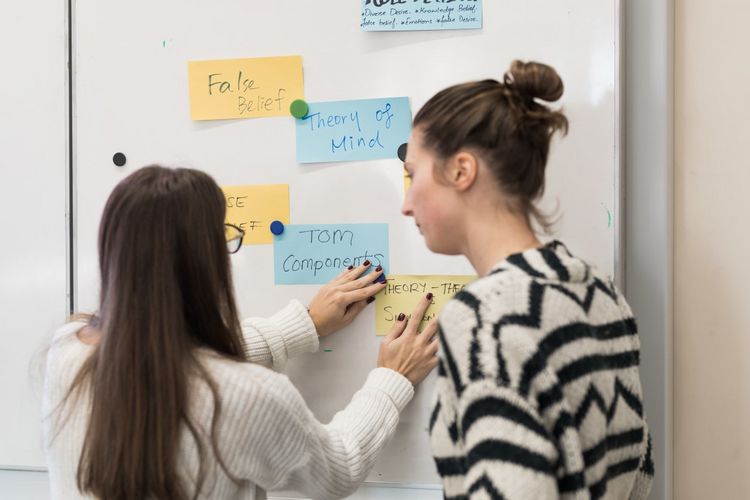The Child Development and Intervention Master of Science program focuses on understanding and promoting the positive and healthy development of children. It is characterized by small cohorts that allow for intensive exchange between faculty and students, hands-on research and internship opportunities, and a curriculum that moves beyond research to train students on translating cutting-edge science into effective practical solutions for children and families.
The Child Development and Intervention MSc (CDI) succeeds the Master's program Early Childhood Research (ECR). More information about the ECR can be found here.
At a glance
-
Field of study
teaching and educational science, psychology -
Degree type
postgraduate -
Degree
Master of Science -
Language of instruction
English -
Full/part-time
full-time, part-time -
Course start
winter semester -
Admission restriction
national admission restriction -
Standard period of study
four semesters
-
ECTS credits
120
Requirements
- A first academic degree
- Knowledge of English at C1 level of the Common European Framework of Reference for Languages
- Basic knowledge in research methods and statistics
The faculty will check whether the above requirements have been met and then issue an official notification. This serves as proof that the candidate fulfils the admission requirements.
Contents
The Child Development and Intervention Master of Science program offers courses in three core modules: research, research - practice, and policy.
Research: Students receive a solid foundation in clinical-developmental theory and analytical methods for childhood and intervention studies in diverse contexts. This ideally prepares them to pursue a PhD in the field of child development and mental health, as well as immediately engaging in the design and implementation of research on positive and healthy child development in academic, non-profit, governmental, or industry settings.
Research - Practice: Core knowledge is put into practice with training on strengths- and science-based assessment, intervention, and prevention techniques to strengthen children’s social-emotional development and mental health in different socialization contexts. These applied modules prepare graduates for careers in the areas of counselling, including the design, delivery, and evaluation of interventions in diverse institutions like, for instance, schools or ambulator care centers.
Policy: Research should have impacts beyond the walls of academia. Students learn how to transfer the results of basic and applied research into comprehensive materials and directives that are made accessible for the children themselves, their parents, educators, clinicians, and policymakers in national and international contexts. These modules prepare graduates to enter knowledge transfer roles in social and political institutions at the local, national, and international levels.
The two-year degree program is offered entirely in English and provides a unique curriculum. The range of subjects includes:
- empirical methods and statistics
- scientific practice
- child development in an interdisciplinary context
- social-emotional development of children
- Psychopathology
- strength-based assessments
- intervention and prevention methods to enhance child development and well-being
- transferring research into social policy
- science communication and public outreach
The master’s program is comprised of 120 credit points, of which 25 are allocated to the master’s thesis and 5 to a compulsory, applied 4-week research internship. To reflect the interdisciplinary nature of developmental research, research-practice, and policy, courses are offered by lecturers specializing in a range of subjects, including educational science, developmental psychology, clinical-developmental psychology, and philosophy.
- English-language degree programme
- Many international students
- Small cohorts
- Intensive exchange between instructors and students
- Interdisciplinary
- Applied research internship opportunities
- Unique curriculum focused on translating research skills into practice and policy solutions
The Child Development & Intervention master's program prepares students to work in research, research-practice, and transfer settings.
Research: The CDI is a thesis-based degree — graduates will be eligible to pursue a PhD in a related field. Graduates will also be immediately qualified to conduct experimental and applied research in academic, non-profit, education, government, and industry settings.
Research - Practice: CDI graduates can also start applied careers to promote positive child development and well-being, including the design, delivery, and evaluation of child- and group-level interventions in schools, kindergartens, and ambulatory care centers.
Transfer: Policy-minded graduates of the CDI can enter knowledge transfer roles in social and political institutions at the local, national, and international levels to translate empirical findings on positive child development into effective messaging for the public and stakeholders.
A mandatory internship is included in the master’s programme. Details are set down in the Internship Regulations for the programme.
It is generally recommended that students carry out a study stay abroad. This must by organised by the students themselves.
Application
Course start: Winter semester
Admission restriction (NCU): yes
Application period: 2 May–31 May
Application portal: AlmaWeb
Please ensure that you read and take note of the further information provided on the pages “Online application” and “Applying for a master’s programme”.
International students can find information about application periods and how to apply on the page “International”.
Options in the winter semester: 3rd semester – without restrictions on admission
Options in the summer semester: 2nd semester and 4th semester – each without restrictions on admission
Application period: 2 May–15 September for the winter semester; 1 December–15 March for the summer semester
Application portal: AlmaWeb
Special enrolment requirements: credits form (Anrechnungsbescheid)
You can find more information on our page for “Applying for higher semesters of study”.
International students can find information about application periods and how to apply on the page “International”.
Internationality
Compulsory curriculum in English







































































